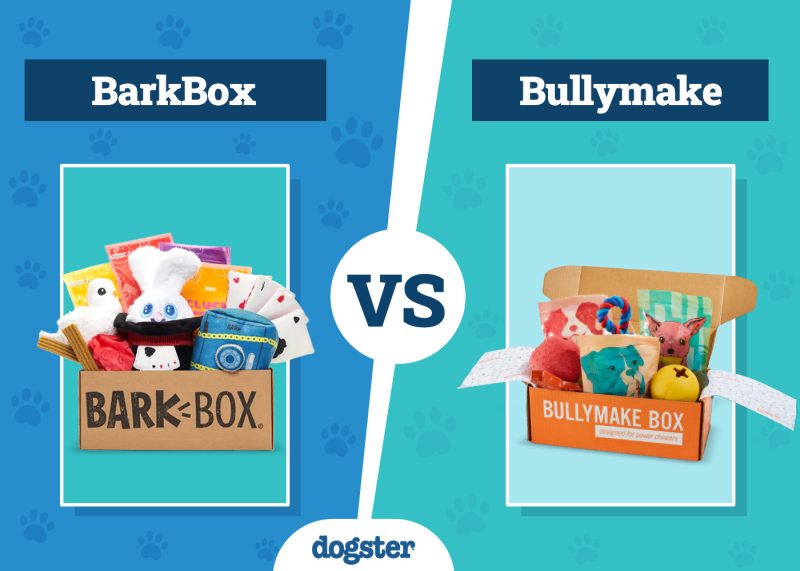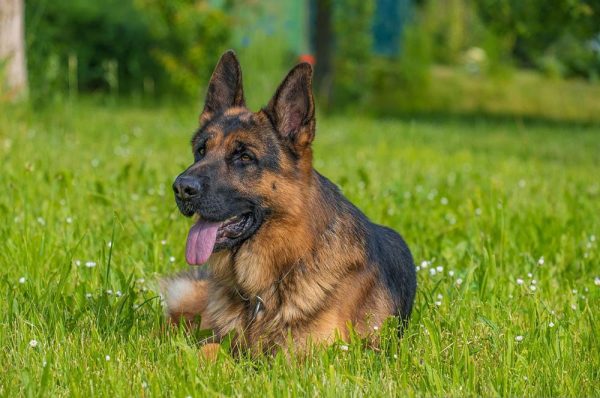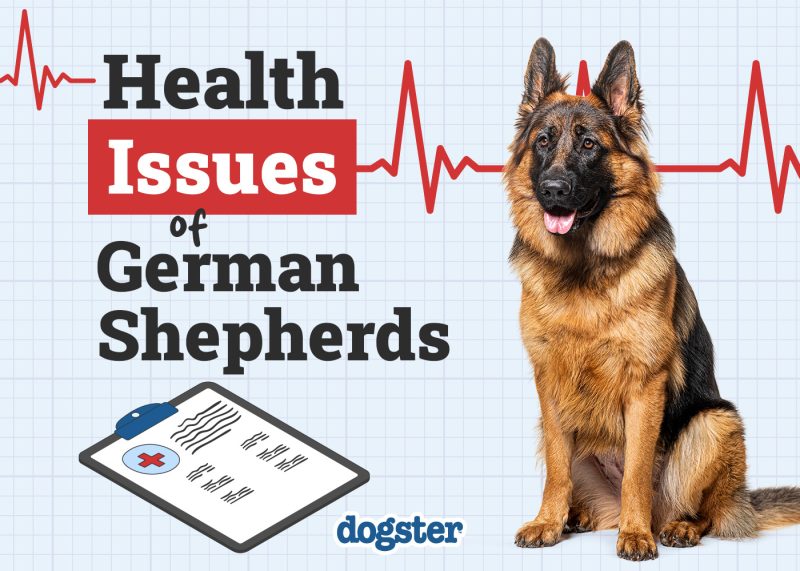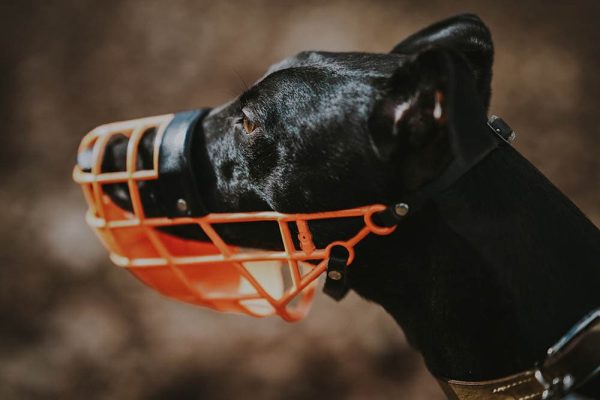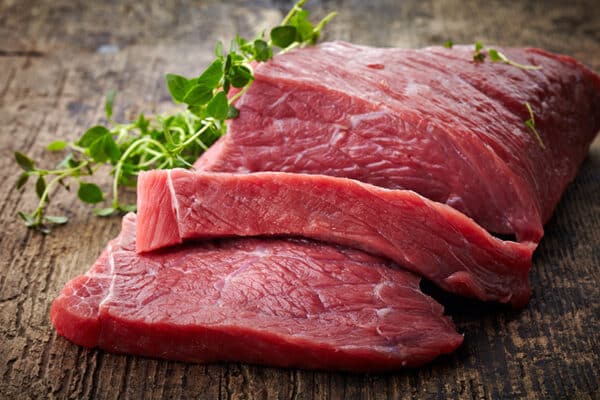In this article
We’re sure you’ve heard the expression about a dog’s bark being worse than his bite. However, one dog that this statement doesn’t apply to is a Kangal since they have the strongest bite force of any breed. Although these dogs are large, they don’t tend to be aggressive as long as they are treated right. Instead, that strong bite goes back to the breed’s history and the purpose it served.
A Kangal, also known as an Anatolian Shepherd, is a dog from Turkey. There, they protected sheep and other livestock from predators, including wolves, bears, and boars. These predators aren’t gentle by any means, so it’s important for a Kangal to have a strong bite force to be effective at keeping them away. Below, we’ll examine the Kangal’s bite force and compare it to that of other breeds. So what is the bite force of a Kangal? The average Kangal bite force is somewhere between 250 and 400 PSI.

What Is a Kangal’s Bite Force?
The bite force refers to the strength of an animal’s bite. Although Kangals don’t have the strongest bite force of any animal, they may have the strongest bite of any other dog breed. We mention the word may as there have been no studies (as of this writing) on the bite forces of different dog breeds.
The bite force PSI measurement for a Kangal is commonly said to be a whopping 743 PSI. However, the true source of this information is difficult to pinpoint, and this is very likely highly overestimated.
National Geographic’s Dr. Brady Barr has studied animal bites, testing humans, domestic dogs, and wild animals alike.1 Based on the research by Dr. Barr, the Pit Bull has a jaw power of around 242 pounds per square inch (PSI). By comparison, a wolf has a bite force of roughly 398 PSI, and a shark around 600 PSI.
With this information in mind, 743 PSI seems far too high for a Kangal, and we can estimate it to be closer to somewhere between 250 and 400 PSI.

What Is a Kangal’s Bite Force Compared to Other Animals?
Even though a Kangal has the strongest bite force of any breed, it pales in comparison to the Saltwater Crocodile. It has a bite force of 3,700 PSI! A list of some animals with the strongest bite forces include:
- American Alligator: 2,125 PSI
- Hippopotamus: 1,800 PSI
- Bull Shark: 1,350 PSI
- Gorilla: 1,300 PSI
- Polar Bear: 1,200 PSI
- Grizzly Bear: 1,160 PSI
- Hyena: 1,100 PSI
Can a Kangal’s Bite Break a Bone?
The best answer to this question is that it depends on the bone. The femur is the strongest bone in the human body, which requires about 4,000 Newtons of force to break.
Since a Kangal’s bite force is significantly lower, it is highly unlikely for their bite to break a femur. However, it is possible that a Kangal could break a smaller bone, such as a bone in the finger or hand.
Even so, a bone isn’t likely to break due to just the bite from a dog. Instead, more damage is likely to occur when a dog bites down and then shakes their head. If a Kangal bites you, it is likely to cause bruising or even draw blood. In some cases, the bite of a Kangal can result in death if they bite someone in the neck or hit a major artery.
However, it is very rare for this to happen to a human, as Kangals usually only bite predatory animals that they perceive to be threats to the livestock they guard.
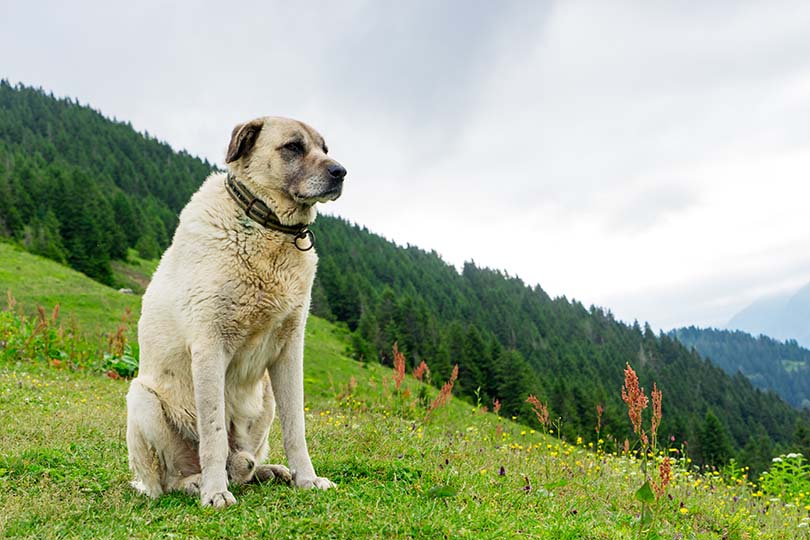
Are Kangals Dangerous to Have as Pets?
The large size of a Kangal is intimidating enough (they can weigh up to 150 pounds), but now that you know their bite force, it can make them seem even more dangerous. Using common sense around large, powerful canines is always a good idea when you don’t know how strong they are. Kangals are generally not aggressive, and they don’t bite unless provoked or sense a threat.
In terms of having a Kangal as a pet, it should be fine as long as you train and socialize them properly. They are more protective of their humans than they will be dangerous to them. Kangals aren’t the most affectionate dogs; they tend to be independent.
However, Kangals are patient and loyal toward their humans, including children and other pets. If you have kids, you don’t have to worry too much about your Kangal hurting them as long as you watch them closely. They can be territorial and don’t care much for strangers or anything that appears to be a threat to those that the Kangal is loyal to. This makes them good guard dogs to have around your home and farm.

Final Thoughts
Of all domestic dog breeds, the Kangal’s bite force is likely among the strongest. Because of this, it is understandable if you’re concerned about having a Kangal as a pet. But you shouldn’t let the strong bite deter you from having the opportunity to love one of these dogs, as it is very rare that they turn their bite to humans.
See also:
- How Strong Is A Boerboel’s Bite Force? (PSI Measure & Facts)
- How Strong is a Golden Retriever’s Bite? Measured in PSI
Featured Image Credit: pmwtastro, Pixabay





